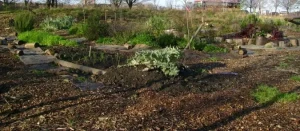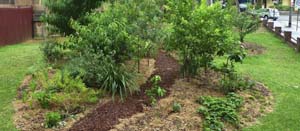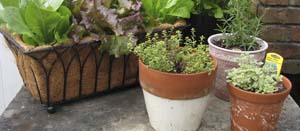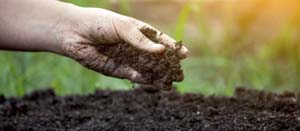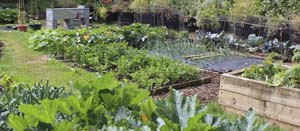SEARCH RESULTS > ARTICLES > Community
In the quiet depths of garden soil, a hidden symphony unfolds as plants engage in intricate relationships with microorganisms. Beyond the visible blooms and verdant foliage lies a complex network of interactions that profoundly shape the health and fertility of the soil. In this exploration, we delve into the nuanced world of plant-microbe relationships and their transformative impact on garden soil. Learn More
As urbanization continues to rise, creating sustainable gardens in small spaces has become a crucial aspect of promoting eco-friendly living. Urban permaculture, a design approach that mimics natural ecosystems, offers innovative solutions for cultivating thriving gardens in urban environments. Learn More
Container gardening is a captivating art form that allows you to create a vibrant and dynamic garden, even in limited spaces. Whether you have a spacious backyard, a cozy balcony, or a small patio, cultivating vegetables and herbs in containers adds an element of creativity to your gardening pursuits. Learn More
Permaculture gardens thrive on the principle of working with nature, and at the heart of a successful permaculture garden lies healthy soil. Building and maintaining fertile soil is essential for sustainable gardening practices that promote biodiversity, water conservation, and overall ecosystem health. Learn More
The microbiome in your garden soil refers to the diverse community of microorganisms that inhabit the soil. These microorganisms play a crucial role in maintaining soil health, nutrient cycling, and plant growth. The soil microbiome consists of various organisms, including bacteria, fungi, archaea, viruses, and microfauna (such as nematodes and protozoa). Here are some key points about the microbiome in garden soil. Learn More
Setting up an edible garden can be a rewarding and sustainable way to grow your own food. Learn More
Permaculture is a holistic and sustainable approach to designing and managing human settlements, agriculture, and ecosystems. The term "permaculture" is derived from "permanent agriculture" and "permanent culture," reflecting its core principles of sustainability and harmonious living with nature. In this introduction, we'll explore the fundamental principles and practices of permaculture, emphasizing its potential to create resilient and regenerative systems for the benefit of both people and the planet. Learn More
People have various reasons for wanting to have a garden, as it offers a range of physical, emotional, and practical benefits. Here are some insights into why people are drawn to gardening Learn More
